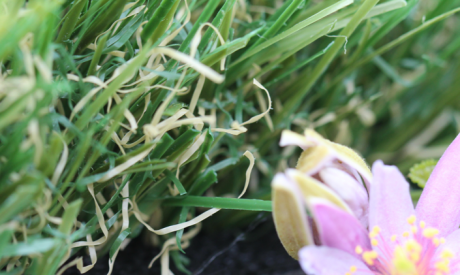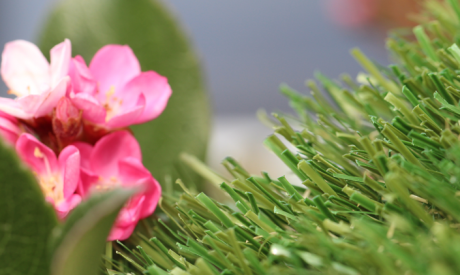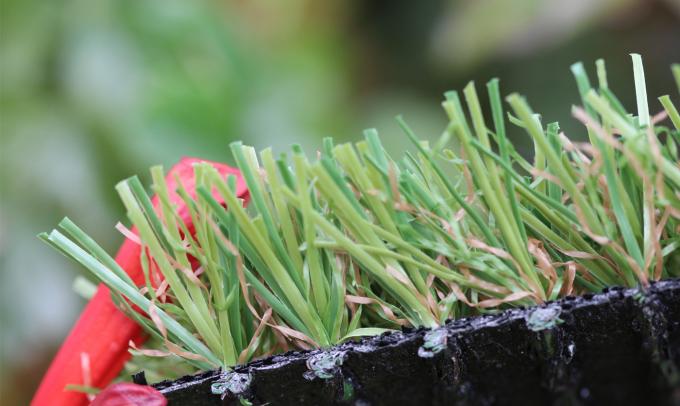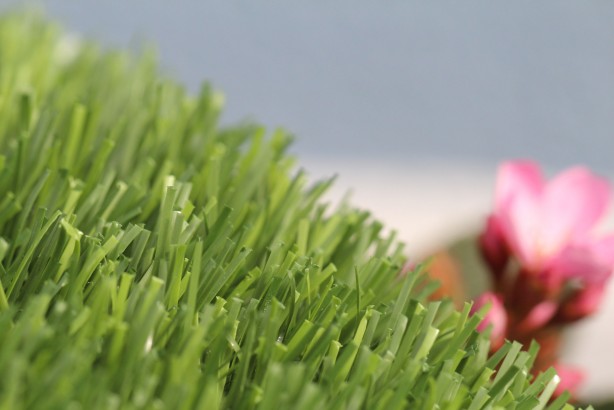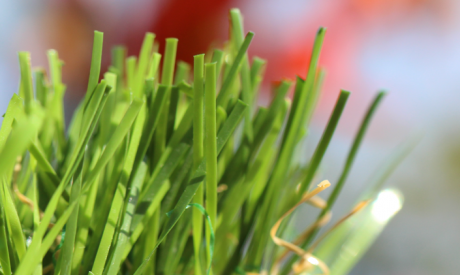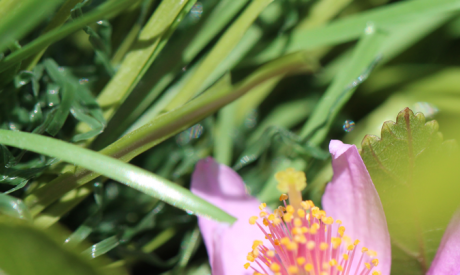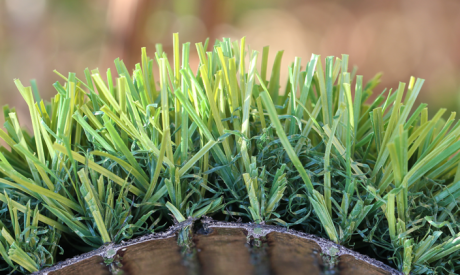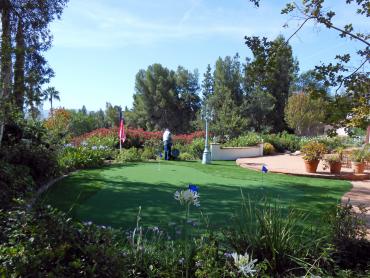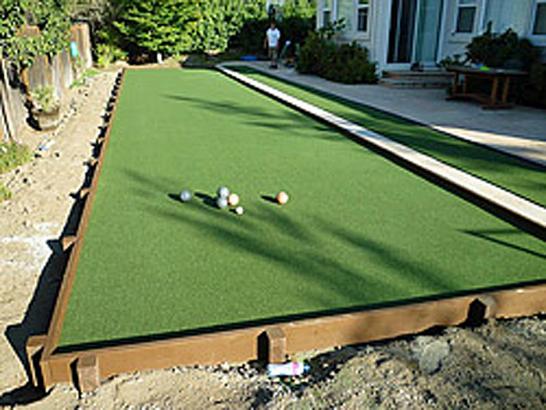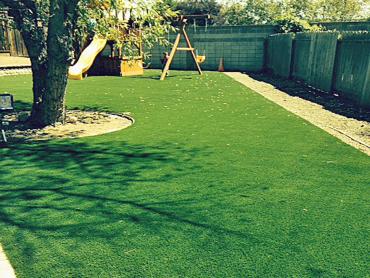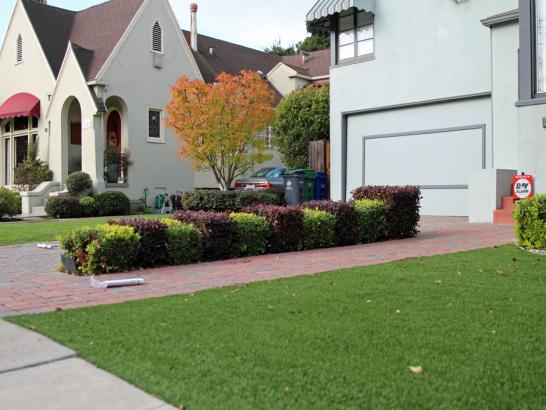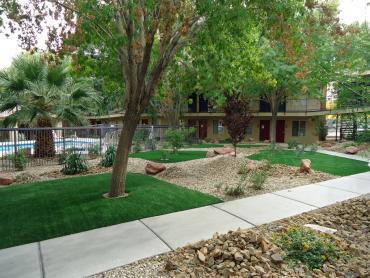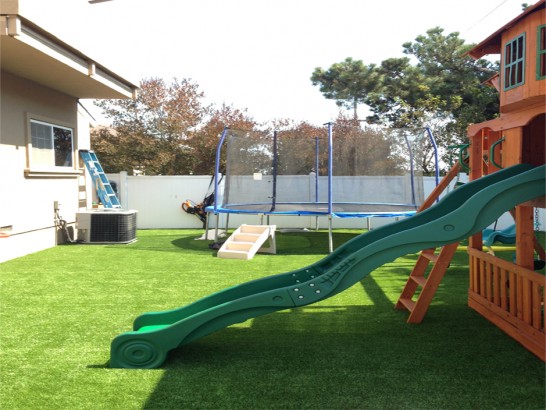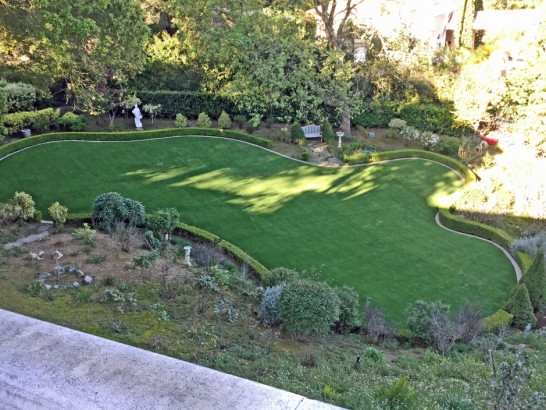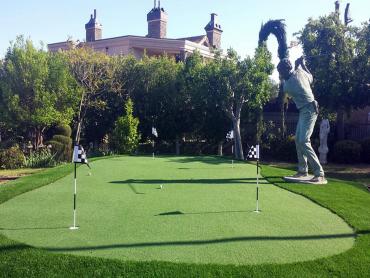Brothers Arijeet and Rajvarun Grewal, students in Hanford, CA, helped
forward a bill that would subsidize synthetic turf in California. The bill, AB
603, was introduced by Bakersfield assembly member Rudy Salas in February. If passed, the
bill would grant a subsidy to those who replace their natural grass lawns
with artificial grass.
Ari and Raj, students in Hantford at Pioneer Middle
School and Sierra Pacific High School, thought of the idea and suggested it to
Mr. Salas via a letter. Mr. Salas liked the idea, and now it's being put into motion. The brothers created a Facebook page for their project called Saving California Farms One Drop at a Time.
Ari and Raj agreed to speak with us in this interview, and
Global Syn-Turf is honored to have them.
Where did the idea
come from?
Raj: Last summer,
we decided to redo our landscape. My
brother and I became interested in finding out if we could install synthetic
grass, which will help conserve fresh water. My father explained that synthetic
grass is expensive, and he further explained that we could go for it if it was
subsidized like solar panels. This
encouraged us to propose legislation.
What motivated you to
pursue this endeavor so seriously?
Ari: Living in the Central
Valley, one cannot escape drought news. We
learned that more than 60% of fresh water is wasted on lawn maintenance in
California. Therefore, we wanted to do our
part to conserve fresh water.
When did you realize
that the potential of synthetic grass as a drought-tolerant option wasn't being
fully utilized?
Raj: After
researching extensively on this topic, we learned that many cities in
California did provide rebates for homeowners and businesses that purchased and
installed synthetic turf. However, we
learned that there was not a state-wide program that provided state-wide
incentives, given that some of the cities and counties do not generate much tax
revenue and cannot afford to provide incentives to its residents.
What do you think
will be some of the long term effects of the popular adoption of synthetic
grass in residential areas?
Ari: Primarily, the
adoption of synthetic grass in residential areas would help conserve a lot of
fresh water that can be used for our Central Valley agriculture. It would also decrease the chances of another
severe drought to occur in California.
Do you think
synthetic grass has any advantages over other drought-tolerant alternatives,
such as xeriscaping?
Raj: Synthetic
grass and drought- tolerant alternatives both have advantages. They both help reduce the wastage of fresh
water. However, grass is a part of our
natural lives. Xeriscaping, on the other hand, takes away
that naturalness.
On your Facebook page you say that "One day, water may lead to the division of California." Could you
expound on that?
Raj: It is a
politically hot subject. Several times
in the past, a division of California has been proposed. More than any other political reason, water was the
main issue. Recently, there is zero water
allocation from the Sacramento--San Joaquin River Delta due to smelt fish. The majority of Central Valley residents believe
that Big Brothers on both sides (North and South) control most of the legislative
processes due to their population and, hence, influence and control of the flow of water.
On your Facebook page you say that you "would like to propose a clause in the bill allocating a
percent of subsidy to provide vocational and trade education for those who may
get negatively impacted so they can rebuild a better and brighter future for
themselves and their families." Could you expound on this idea?
Ari: We wanted to
make sure that our proposal does not negatively impact anyone, especially
hardworking Californians in the landscape industry. Therefore, we proposed a portion of
incentives to train them in synthetic grass installation.
On your Facebook page you say that popular adoption of synthetic grass will "bring economic
prosperity to the state of California." Could you explain this a bit further?
Ari: In the beginning,
lot of people were against Internet or online shopping, and now we can see how
many jobs it has created in terms of software, e-commerce, and logistics (warehouse and transportation)
jobs. Along the same lines, we strongly
believe that the synthetic grass industry will also contribute in creating jobs
(i.e. manufacturing, installation, and maintenance).
What has it been like
working with Bakersfield assembly member Rudy Salas? Are there any lessons you
can impart to us that you learned from working with him?
Raj: It was a
wonderful experience. We have learned
more about the other projects and bills that are being proposed in the Assembly
Session. We have learned to become more
active in our community.
Did you have a
specific strategy for pitching the Bill to the Chairman of the Assembly
Committee on Revenue and Taxation, Mr. Phil Ting?
Ari: It was a great
pleasure to meet Mr. Phil Ting and asking for his support in person. We believe we have already reached the masses
via TV and newspapers. We have also
requested the local city council and county Board of supervisors to write to
Mr. Ting in our bill's support. We also
encourage the industry (including your company) to support and lobby our bill.
What was the
experience like traveling to Sacramento to introduce AB 603? Did anything occur
that was unexpected? What was the most surprising thing you learned about during
your trip introducing the bill?
Ari: It was an
amazing experience. We were honored and
delighted to be invited by Mr. Salas to be a part of history in the
making. We still have goose bumps from
being on the assembly floor submitting AB 603 and seeing "Grewal Family" name
on the notice board in the assembly hall.
As a visitor you are just allowed to be in the gallery, but being there,
on the assembly floor, just feels great!
Raj, according to a
report, you are interested in pursuing a career in politics because of this
experience. Is there a specific area of politics you are interested in?
Raj: I have not
fully chosen my field; however, whatever job I do take, I would love to give
back to my community. Going through this
adventure has definitely opened my eyes to the endless career paths from which I could
choose.
How does this
experience fit into both of your long-term goals?
Ari: Our community
has instilled in us the will power to give back to our community. Proposing this bill has given us the
opportunity to help our neighborhoods.
Also, we have learned that the sky has no limit in defining our own
destiny.
Is there anything
else either of you would like to talk about?
Raj: We highly appreciate you reaching out to
us. Once again, we strongly request your
company's leadership team to engage law makers in California (especially Mr.
Ting and Mr. Salas) and support our bill.
...

